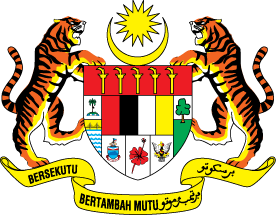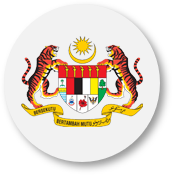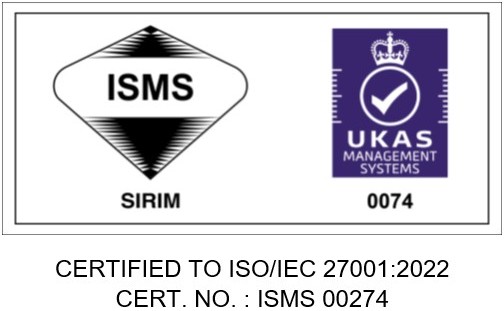HONG KONG, March 23 (Bernama) -- Datuk Seri Najib Tun Razak has given the assurance that Malaysia will address the needs of foreign fund managers for increased liquidity plus good and well-governed listed companies in making the local equity and capital markets more attractive for portfolio investors. The Prime Minister also told top-notch fund managers at the Credit Suisse investment conference Tuesday that there were huge prospects for them in equity and capital markets as well as for foreign direct investors given the ongoing and unprecented transformation of the Malaysian economy.
He cited how Malaysia's quest to transform itself into a high-income and developed nation by 2020, and its liberalisation initiatives, Government Transformation Plan and the New Economic Model offered immense opportunities, making it more positive for them to invest.
"We are committed to (economic) reforms and overcoming structural problems facing the economy," he told a press conference after addressing a luncheon session at the 13th Credit Suisse Asian Investment Conference attended by regional fund managers. The event was moderated by former British prime minister Sir John Major who is also Special Adviser to Credit Suisse.
Najib, who is also Finance Minister, said he was pleased with the outcome of discussions with regional fund managers earlier and the luncheon moderated by Major as he was able to expound on Malaysia's investment attributes.
"The purpose of my visit to Hong Kong is to tell the Malaysian story which is a good story to tell so that it would be seen as an attractive destination for equity and capital market investment and FDIs," he said.
His first visit to Hong Kong since taking over as Prime Minister last year, Najib arrived here Monday accompanied by his wife, Datin Seri Rosmah Mansor as well as Minister of International Trade and Industry Datuk Seri Mustapa Mohamed.
Najib lamented that the market has really not appreciated the initiatives such as the liberalisation of 27 sub-sectors, relaxation of Bumiputera controls, rolling back the Foreign Investment Committee (FIC) guidelines as well as review of the Approved Permits (AP) holders.
He said the initiatives were quite monumental and ground-breaking given the internal dyanamics in Malaysia.
Against such a scenario, he said, "We need to communicate our storyline as the world is becoming more competitive.
"We also need to reach out to the global community so that they understand and appreciate some of the new initiatives we are undertaking," he said.
Turning to foreign direct investments (FDIs), he said Malaysia will strive to increase the quantity this year after the substantial decline last year.
"We also hope for a marked improvement in quality of FDIs this year and our initiatives will move in that direction."
Malaysia also wants to be discerning about the kind of investments it attracts so that they increase their impact on the domestic economy, whereby we don't want labour-intensive industries but rather those that create backward linkages to the domestic economy and create high-paying jobs.
To this end, he said Malaysia stands ready to offer customised incentives to investments which are high-impact in nature as well as looking at administrative reforms that will encourage FDIs to come Malaysia's way.
Asked on Malaysia's official growth forecast for 2010 which will be issued by Bank Negara Wednesday, he said: "I am not supposed to let the cat out of the bag, but I am on record as saying we are looking at 5.0 per cent and beyond which is a general kind of goal for the government."
On whether Malaysia needs to raise interest rates, he said: "I don't comment on interest rates as the market will react to it."
To another question, he said Malaysia has decided to go for a second wave of privatisation which firstly comprises the privatisation of government-owned companies.
Secondly it is the privatisation proposals both in terms of them being entirely funded by the private sector and those that require private finance initiative (PFI) as a form of tipping point.
He cited how the government could come to invest to save on infrastructure costs and that as a result would make the investment viable.
"We are also looking at land development that can be privatised on an open bidding system."
As to whether the government could keep the 5.6 per cent budget deficit forecast without subsidy cuts and new taxes, he said the government was on course in terms of reducing fiscal spending while revenue has been increasing of late which was a good sign.
"Reducing subsidies is something we are seriously considering but it requires careful thinking and buying in of the general public," he said.
On what the Gross Domestic Product (GDP) target was under NEM for the next 10 years, he said: "We have to work it out because if we want to become a high income country, then we have to decide what the definition is of a high income country.
"Our GDP is US$7,000 per head now. Therefore, what level do we want to pitch come year 2020 and how do we get there in terms of growth rates...all these will be calculated when we unveil the NEM," said Najib.
He said that when Malaysia unveils the NEM, "we will look to balance the domestic requirements and making the market accept them (reforms) in terms of the way forward for the affirmative action plan."
On whether the government has any plan to make sports betting legal, he said that there were proposals but "we have to see first."
Najib also said Khazanah Nasional Bhd, the government's investment arm, should get involved in and spur more strategic investments locally as well as go abroad and invest in strategic investments if there was a payout in terms of higher dividends and capital gains and new technologies.
"So, on both counts, Khazanah will be looking at opportunities," he said.
-- BERNAMA
Last Updated 2015-05-14 11:59:18 by admin2













 Home
Home






























